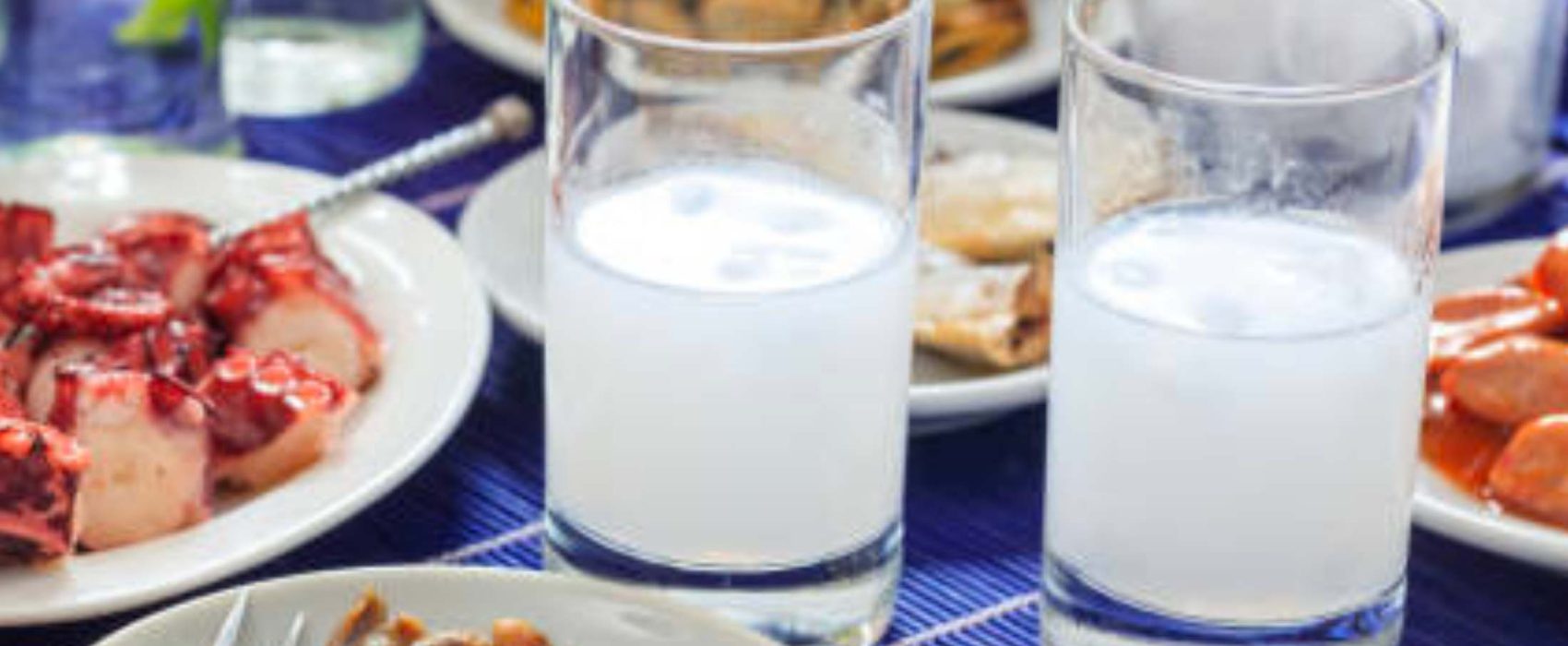Ouzo, is Greece’s National drink and it symbolises the Greek way of thinking. It’s a 100% Greek product and it’s not produced in any other part of the world.
The best Ouzo it is considered is from the island of Lesvos (also known as Mytilini).
The creation of ouzo is made from a precise combination of pressed grapes and herbs.
The resulting liquid is cooled and stored for several months before it is diluted to about 80 proof, or 40 per cent alcohol.
Ouzo is often referred to as a particularly strong drink, although its alcohol content is not especially high compared to other liquor. The reason mainly has to do with its sugar content.
Sugar delays ethanol absorption in the stomach, and may thus mislead the drinker into thinking that they can drink more as they do not feel tipsy early on. Then the cumulative effect of ethanol appears and the drinker becomes inebriated rather quickly.
This is why it is generally considered poor form to drink ouzo without eating anything. The presence of food, especially fats or oils, in the upper digestive system prolongs the absorption of ethanol and ameliorates alcohol intoxication.
It is usually served as an aperitif, with snacks known as mezedes.
These keep the effects of the alcohol from overwhelming you and enable you to sit and drink slowly for hours!
The mezedes can be something like grilled octopus, fried fish, salted sardines, fried potatoes, stewed meat/vegetables, meatballs, cheese-tomato-olives, sausage…
A good trick is to keep adding water as you drink it. In this way you won’t get drunk because you will be drinking as much water as ouzo you won’t be dehydrated or hungover (maybe).
Eat and drink slowly and enjoy!!!
Ouzo is also used in some mixed drinks and cocktails.
When water or ice is added to ouzo, which is clear in color, it turns milky white. This is because anethole, the essential oil of anise, is soluble in alcohol but not in water. Diluting the spirit causes it to separate creating an emulsion, whose fine droplets scatter the light. This process is called louching, and is also found while preparing absinthe.
